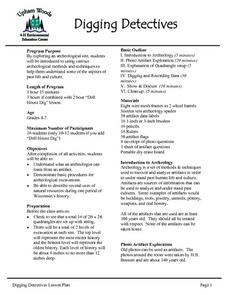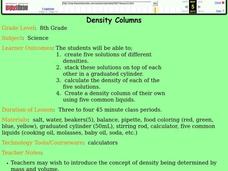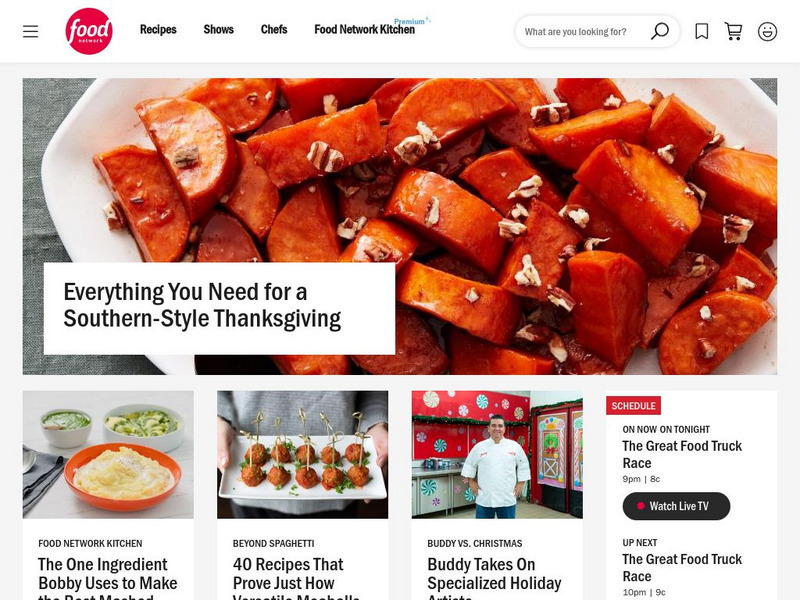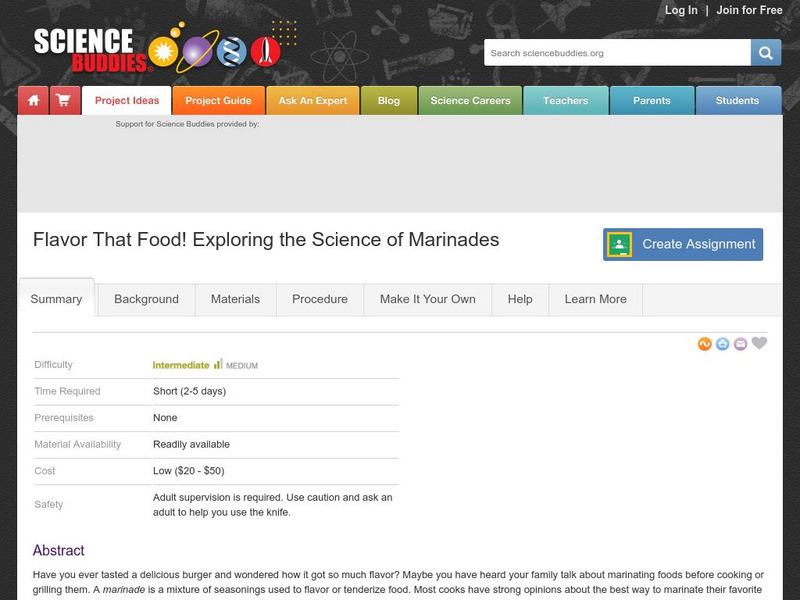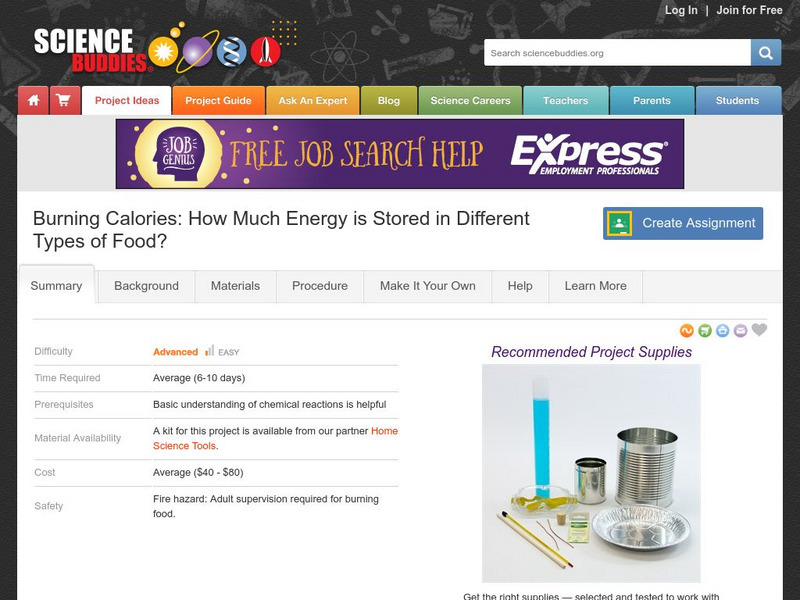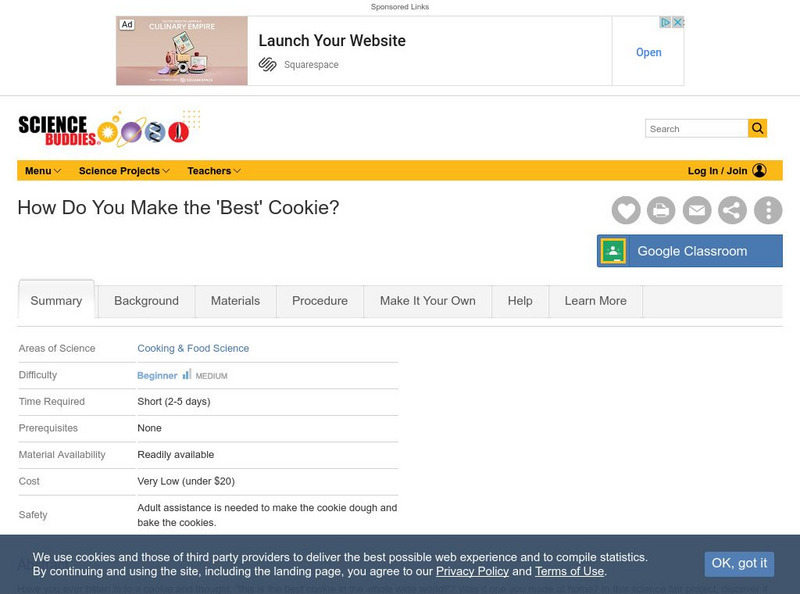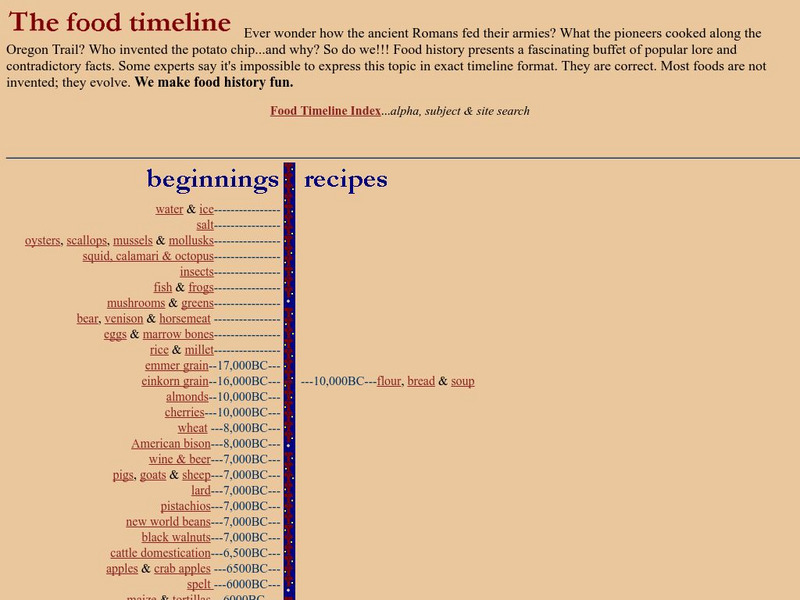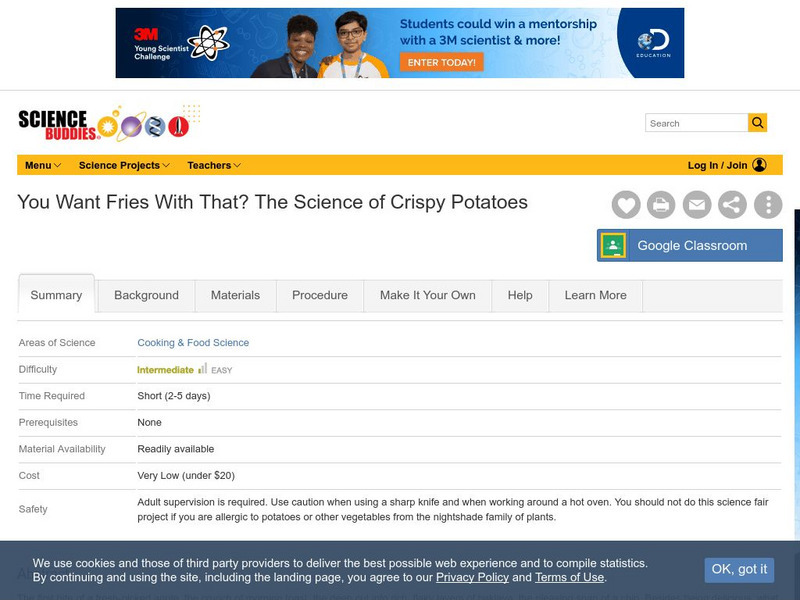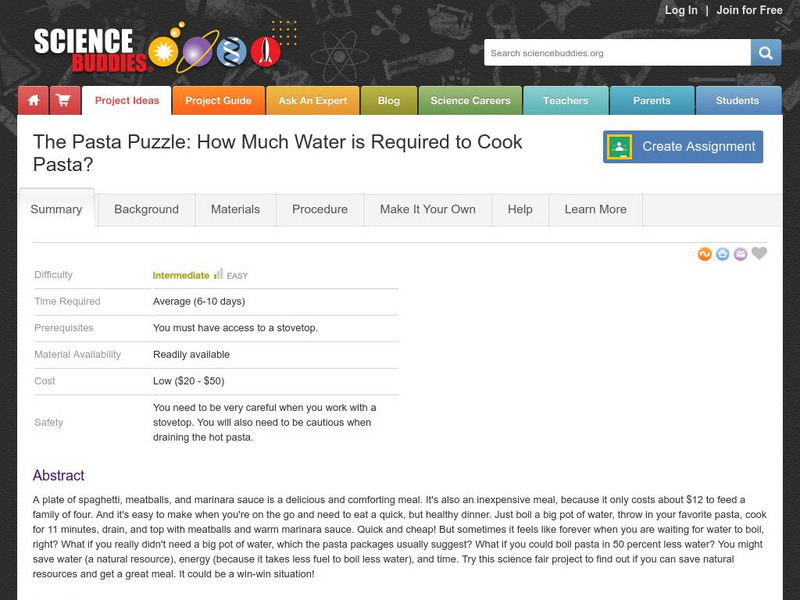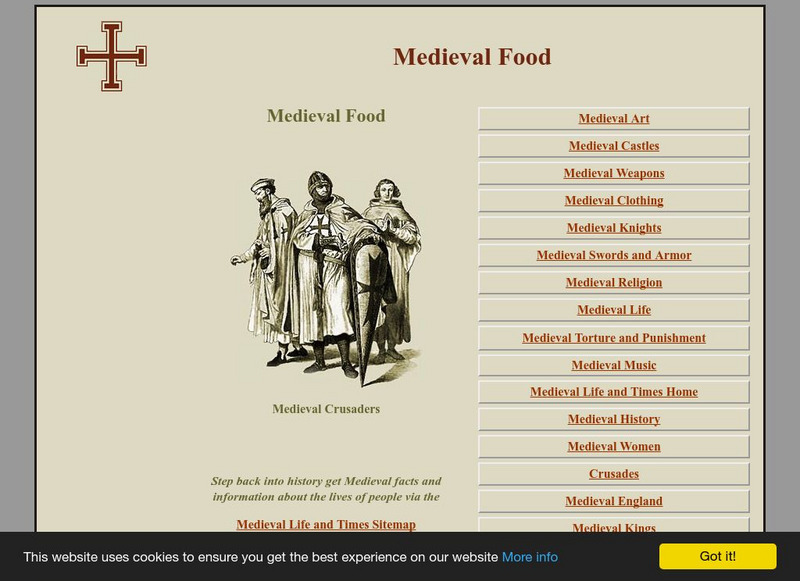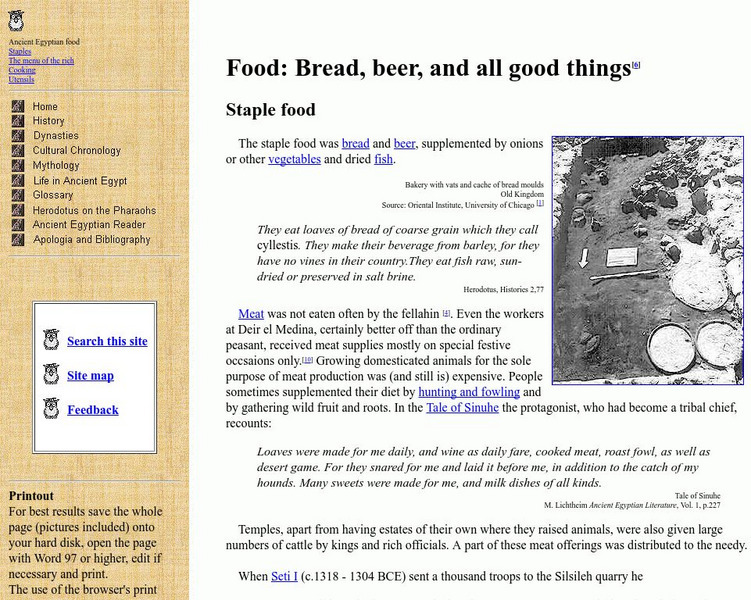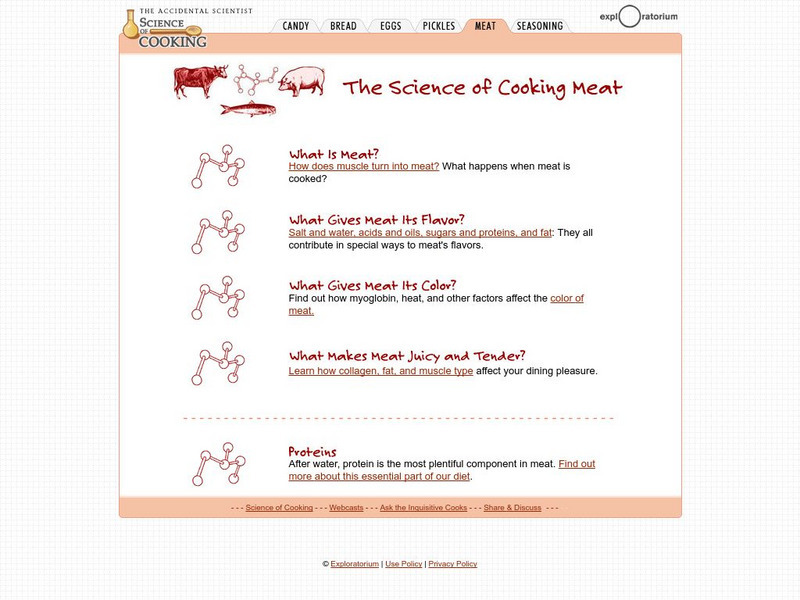Curated OER
Water Consumption, Pricing and Conservation in Utah.
Young scholars investigate the research report that measures the levels of water usage for Utah. They focus on conservation efforts that are currently being used. They reflect upon their own amount of water usage and research methods of...
Curated OER
Digging Detectives
Students demonstrate basic procedures for archeological excavations. They explore an archeological site, students using various archeological methods and techniques to determine some of the aspects of past life and culture.
Curated OER
Native American Pottery
In this Native American craft worksheet, students read a short excerpt about Native American pottery and then color each of the pots. Students must circle the two pots that are exactly alike.
Curated OER
Intermediate Dialogues - Vinegar
In this intermediate dialogue worksheet, students read a dialogue between 2 people about vinegar and answer questions about it. Students answer 4 questions about the dialogue.
Curated OER
Density Columns
Eighth graders create solutions with 5 different densities. In this chemistry lesson, 8th graders analyze the density of solutions stacked on top of each other. They document their data through graphing. This assignment requires 4 class...
Curated OER
Shake Jars
Students investigate different sounds. In this lesson on sound, students put different substances into jars so that when students shake the jars they make different sounds.
Goodwill
Gcf Global: Food and Cooking Food Labels
Use this interactive activity to locate specific information on food nutrition labels to assemble a menu that is appropriate and safe for all of your dinner guests.
BioEd Online
Bio Ed Online: Living Things and Their Needs: Food for Kids
Students participate in simple cooking activities and learn how cooking makes it easier to eat some foods, such as popcorn. The lesson can be downloaded in PDF format.
Other
Food network.com
Rely on the Food Network for guidance in your kitchen. Whether you are planning a dinner party, making a quick and easy meal, or you need ideas on healthy meals, the Food Network provides advice for your everyday cooking needs.
Science Buddies
Science Buddies: Flavor That Food! Exploring the Science of Marinades
Have you ever tasted a delicious burger and wondered how it got so much flavor? Maybe you've heard your family talk about marinating foods before cooking or grilling them. A marinade is a mixture of seasonings used to flavor or tenderize...
Science Buddies
Science Buddies: Project Ideas: Hidden Grasses and Beans in Processed Foods
In this cooking and food science fair project, determine which common crops are found most often in processed foods. The Science Buddies project ideas are set up consistently beginning with an abstract, objective, and introduction,...
Science Buddies
Science Buddies: Project Ideas: Understanding How Food Becomes Rancid
In this cooking and food science fair project, the student will determine how light and air can oxidize fat in potato chips and cause the chips to go rancid. The Science Buddies project ideas are set up consistently beginning with an...
Science Buddies
Science Buddies: How Much Energy Is Stored in Different Types of Food?
In this project you'll learn a method for measuring how much chemical energy is available in different types of food. You will build your own calorimeter to capture the energy released by burning a small food item, like a nut or a piece...
Science Buddies
Science Buddies: Tough Beans: Which Cooking Liquids Slow Softening the Most?
Beans are important to the diets of many people, that is why you always find it cooked a specific way or in a specific dish in different cultures. Here you will learn how the liquid that beans are cooked in affects how quickly or slowly...
Science Buddies
Science Buddies: How Do You Make the 'Best' Cookie?
The benefit to cooking food from scratch versus store bought food is that you determine the taste. In this science fair project, discover if you can perfect the taste of your favorite cookie right in your own kitchen by experimenting...
Other
British Nutrition Foundation: Food a Fact of Life (11 14 Years)
A rich collection of eleven learning modules that cover a wide range of topics, including nutrition, diet and health, food science, agriculture, food preparation, food processing, food safety, and more. Modules have PowerPoints,...
Other
The Food Timeline
A collection of food resources-- in chronological order can be viewed at this site. Want to know what the pioneers cooked or when agriculture began? When was the Moon Pie invented? How about jelly beans, catsup, or breakfast cereal?...
Science Buddies
Science Buddies: You Want Fries With That? The Science of Crispy Potatoes
The first bite of a fresh-picked apple, the crunch of morning toast, the deep cut into rich, flaky layers of baklava, the pleasing snap of a chip. Besides being delicious, what do these foods have in common? They're crisp. They have a...
Science Buddies
Science Buddies: Project Ideas: How Much Water Is Required to Cook Pasta?
In this cooking and food science fair project, determine if you really need 6 quarts of water to cook a pound of pasta. The Science Buddies project ideas are set up consistently beginning with an abstract, objective, and introduction,...
Science Buddies
Science Buddies: How Sweet It Is! Measuring Glucose in Your Food
You know that sugar makes food sweet. But did you know that there are different kinds of sugar? Sucrose is the granulated sugar that you usually use for baking. Another kind of sugar, which is found in honey and in many fruits, is...
Other
Medieval Life and Times: Middle Ages Food
A large collection of information about medieval food. Includes links to sections on meals, food preservation, feasts, types of foods eaten, and much more.
PBS
Pbs Kids: Lunch Lab: Games: Fizzy's Food Truck
Your job is to run Fizzy's Food Truck, making burgers and keeping the customers happy, but do it fast!
Andre Dollinger
Reshafim: Food: Bread, Beer, and All Good Things
An interesting look at food, cooking, and cooking utensils in ancient Egypt. Take the opportunity to see pictures of banquets from tombs, and read quotes from ancient Egyptian records.
Exploratorium
Exploratorium: The Science of Cooking Meat
How does muscle turn into meat? What gives meat its flavor and color? What makes meat juicy and tender? At this site from the Exploratorium you can rind out the science behind the food.
Other popular searches
- Cooking Foods Pastry
- Chemistry of Cooking Foods
- Summer Cooking Foods
- Cooking Foods Worksheets
- Cooking Foods Pre School
- Cooking Foods Teamwork
- Cooking Foods Prue School
- Cooking Foods Recipes
- Foods or Cooking Class



